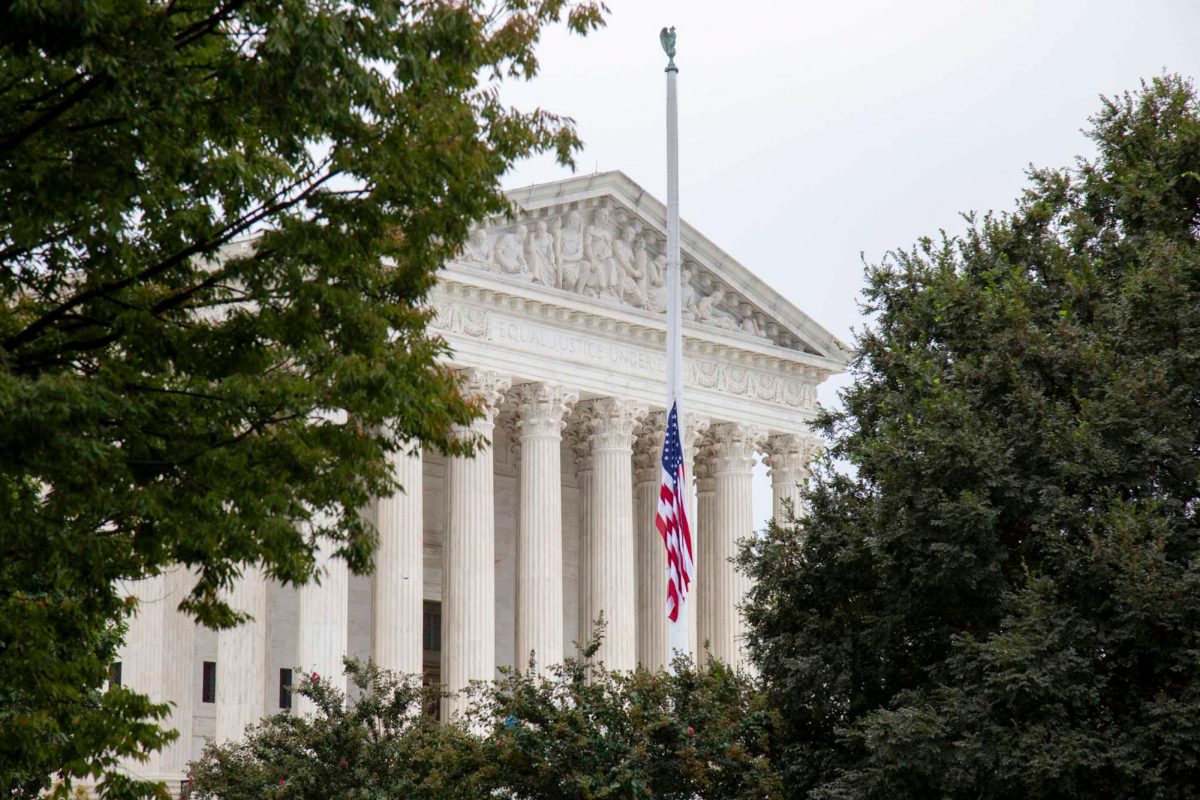More than 40 faculty members filed an amicus brief with the U.S. Supreme Court earlier this month in support of maintaining Medicaid coverage for Planned Parenthood in South Carolina.
The U.S. Supreme Court will hear oral arguments Wednesday for Medina v. Planned Parenthood South Atlantic, which will determine if the state of South Carolina’s 2018 decision to deny Medicaid funding to Planned Parenthood infringes on Medicaid beneficiaries’ right to choose their health care providers. In response, 490 public health deans, organizations and professors — including 40 GW faculty members from the Milken Institute School of Public Health and the School of Medicine and Health Sciences — submitted an amicus brief urging the U.S. Supreme Court to rule to protect Medicaid coverage for providers.
An amicus brief, Latin for “friend of the court,” is a legal brief submitted in a court case by an uninvolved party to relay relevant information that the court may not have considered. MaryBeth Musumeci, a professor of health policy and management who coordinated the creation of the amicus brief, said faculty signed on to provide the perspective of professionals in public health on Planned Parenthood and underscore the benefits family planning services provide to patients.
“Failure to preserve Medicaid beneficiaries’ free choice of provider protection as a privately enforceable right would allow states, acting for ideological reasons, to strip women of access to qualified and trusted providers for reasons wholly unrelated to the provider’s ability to offer high-quality covered services,” the brief states.
As the leading provider of reproductive health care services — including abortion and birth control — in the United States, conservatives have targeted Planned Parenthood since the overturning of Roe v. Wade in 2022.
In 2018, Republican South Carolina Governor Henry McMaster issued an executive order removing abortion clinics from the list of Medicaid providers in the state, including Planned Parenthood. The Fourth Circuit Court of Appeals has repeatedly blocked the decision, and now the Supreme Court will make a final ruling to determine whether Medicaid beneficiaries can choose their health care providers. Abortion is banned after six weeks of pregnancy in South Carolina.
Musumeci said she organized the creation of the brief by reaching out to professors and deans around the country who in 2022 had signed on to an amicus brief regarding the Dobbs v. Jackson decision, which overturned Roe v. Wade, and asked if they would sign onto this case since it also deals with issues related to reproductive health care.
“Politically, ideologically, the South Carolina Governor’s office disagreed with the fact that Planned Parenthood’s organization provides abortion elsewhere,” Musumeci said. “If we’re going to allow states to say we disagree ideologically with whatever stance the provider takes, that has serious implications for access to services.”
Musumeci said the South Carolina governor’s blockage of Medicaid coverage for Planned Parenthood violates federal law due to the court basing the block on Planned Parenthood’s provision of reproductive services instead of the quality of all of the organization’s services.
Musumeci said amicus briefs are beneficial because they add context from professionals in the industry that the judges may not be aware of in complex cases.
“Our group’s goal is to be able to amass that evidence and expertise and present it to the court so that they can be informed about the consequences of their decisions,” Musumeci said.
Musumeci said people in South Carolina whom rely on Medicaid for reproductive services through Planned Parenthood will no longer be able to afford coverage due to the executive order, which she said compounds an existing issue of abortion clinics and family planning services closing in areas where the procedure is under attack. According to a report by the Abortion Care Network, 76 abortion clinics closed between 2022 and 2024, with 70 percent of closures occurring in the South and Midwest.
“There are massive public health, population health benefits to them,” Musumeci said. “So restricting access to the services, the brief talks about the rise of the concept of coverage deserts, and I think that’s a very real concern that states are able to exclude providers from their programs, we’re going to see access problems continue and worsen.”
Liz Borkowski, a professor of health policy and management who signed the brief, said restricting Medicaid coverage for Planned Parenthood could cause an uptick in preventable diseases and conditions related to sexual health and pregnancy because care would become less affordable.
“If South Carolina is allowed to go through with this, then the consequences of that would probably be an increase in unintended pregnancies and also in rates of things like cervical cancer and STI transmission,” Borkowski said.
Borkowski also said it is “noteworthy” that this case is happening at a time when many states have banned or restricted abortion after the overturning of Roe v. Wade. She said now states are not only telling people if they get pregnant they cannot terminate the pregnancy, but they are also making it harder for people to prevent getting pregnant in the first place by restricting access to family planning.
“The fact that they are making it much harder for people to decide whether or not they want to be pregnant and take the steps to prevent that is really alarming,” Borkowski said.
Julia Strasser, a professor of health policy and management and a signer of the amicus brief, said the exclusion of Medicaid coverage from Planned Parenthood would particularly impact lower-income South Carolina residents, preventing them from affording reproductive care from a quality provider. Strasser said research at the GW Fitzhugh Mullan Institute for Health Workforce Equity has demonstrated “substantial variation” in access to common contraceptives among Medicaid beneficiaries.
“Planned Parenthood is a critical safety net provider for contraception services – and others – for low-income individuals,” Strasser said in an email. “Any efforts to exclude Planned Parenthood from the Medicaid program will significantly worsen access to a range of essential health services for low-income individuals.”
Jenna Lee contributed reporting.





